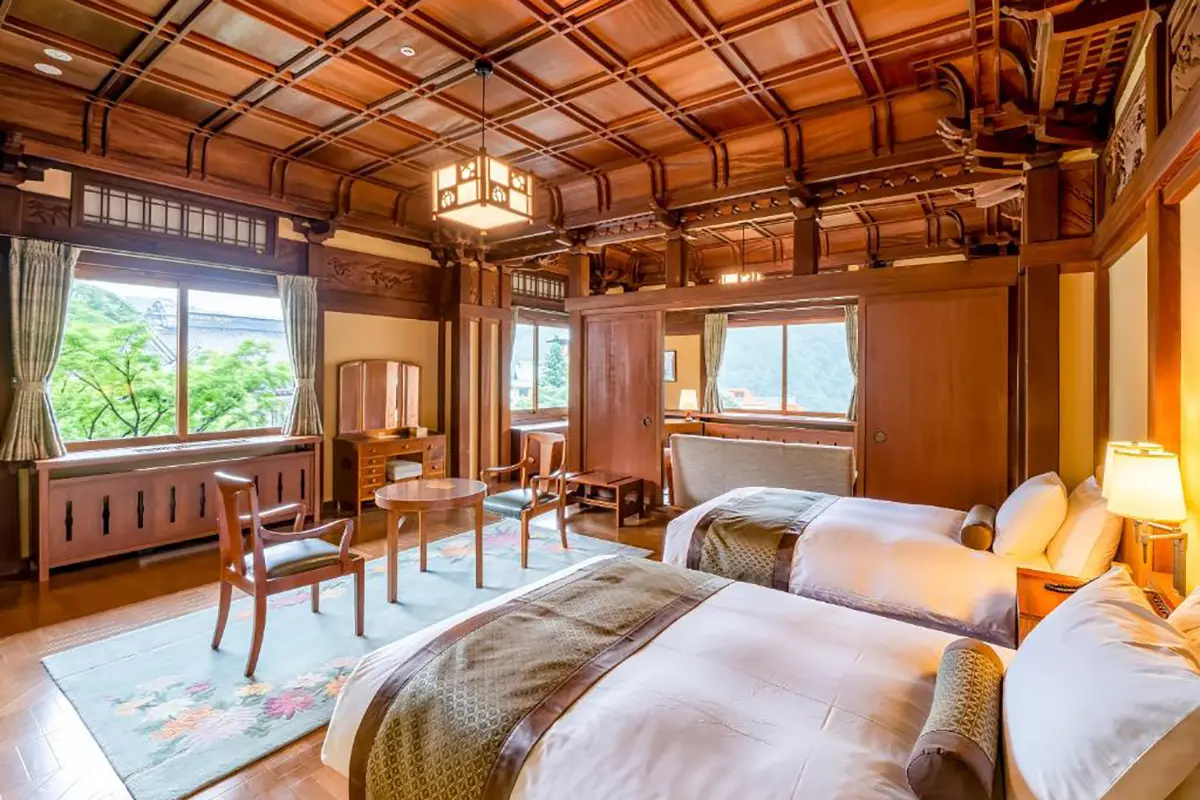
I always have a hard time deciding between hotels in places I’ve never been. Japan offers varied accommodation options that cater to travelers of all budgets. I find those options are not clearly explained in terms of what to expect. In this article, I will introduce different accommodation options and some tips, so that you can choose best suited lodging in Japan for your trip.
Ryokan: At the pinnacle of Japanese hospitality lies the traditional ryokan, an authentic Japanese inn often found in scenic areas like Kyoto and Hakone. Typically, these inns feature tatami mat rooms, futon bedding, and often a communal or private onsen (hot spring bath). The hospitality is unparalleled, with kaiseki meals (multi-course dinners) showcasing seasonal, local delicacies. A night at a high-end ryokan might set you back anywhere from 30,000 yen to over 100,000 yen, but the immersive experience is worth every yen.
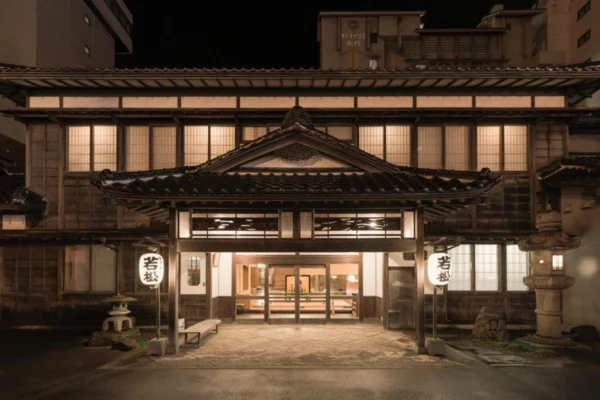
Luxury Hotels: Cities like Tokyo, Kyoto, and Osaka house international luxury brands such as Conrad, Ritz-Carlton, Four Seasons, and Aman. These establishments, although global in brand, often incorporate a touch of Japanese aesthetics and hospitality. Expect prices to start at 40,000 yen and soar depending on the suite and services.
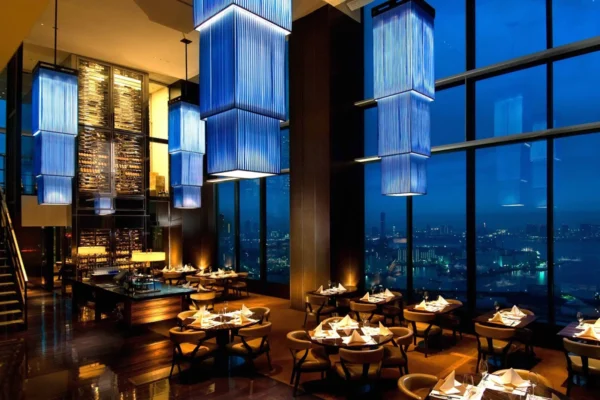
Business Hotels: A unique concept to Japan, business hotels are geared primarily towards the domestic workforce on work-related trips, but they have become increasingly popular among foreign tourists due to their convenience and affordability. Rooms are typically compact, yet efficient, equipped with basics like a small desk, television, and a private bath. Major chains include Toyoko Inn, Dormy Inn, and APA Hotel. Prices generally range from 5,000 to 12,000 yen per night, making them an economical choice for solo travelers and couples.
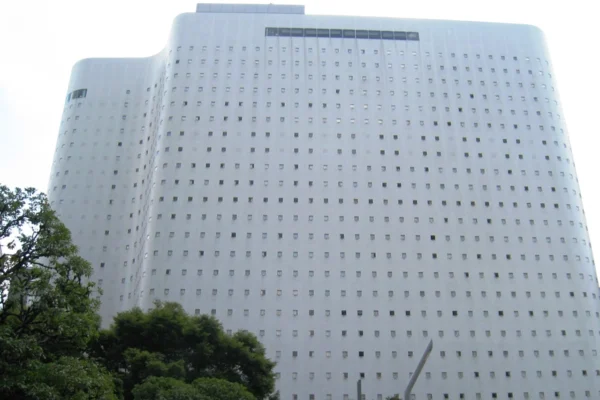
Boutique Hotels: Over the years, there’s been a surge of boutique hotels, especially in trendy areas like Tokyo’s Shibuya or Kyoto’s Gion district. These offer a blend of contemporary design with a touch of traditional Japanese elements. While slightly pricier than business hotels, they provide a more personalized experience, with prices ranging from 10,000 to 25,000 yen.
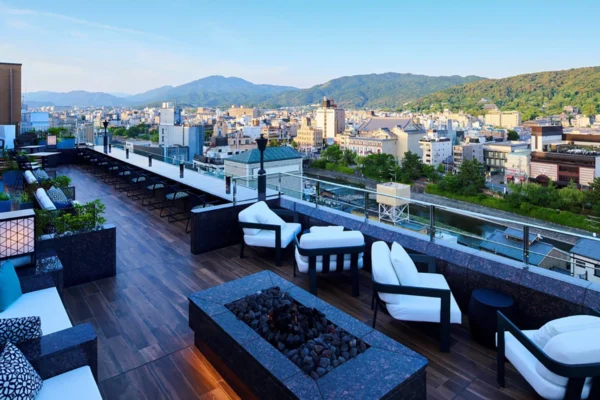
Guesthouses & Hostels: Japanese hostels, often termed “guesthouses”, have evolved over the years. No longer just a dormitory-style space, many now offer private rooms. They’re a great way to meet fellow travelers and are usually equipped with communal kitchens and lounges. Prices can be as low as 2,000 yen for a dorm bed, going up to around 6,000 yen for private rooms.

Capsule Hotels: Originating in Osaka in the late 1970s, capsule hotels are a truly unique Japanese experience. Guests sleep in individual pods, stacked side by side and sometimes on top of one another. Most capsules are equipped with a light, power outlet, and sometimes a small TV. Although designed for businessmen who missed their last train home, they have become popular among tourists looking for a unique experience. Prices range from 3,000 to 6,000 yen per night.
Internet & Manga Cafes: For a truly budget experience, or if you find yourself stranded overnight, these cafes offer private booths where patrons can read manga, surf the internet, or even nap. They’re equipped with reclining chairs or flat mats. It’s not a conventional lodging option but can be a lifesaver in a pinch, with prices starting at around 1,500 yen for a few hours.
Love Hotels: Characterized by their discreet entrance and whimsically themed rooms, love hotels are designed for couples seeking privacy. Foreign tourists sometimes use them as a fun, alternative lodging option. Prices vary depending on time and luxury but expect to pay between 7,000 to 20,000 yen for a night.
Minshuku: Think of minshuku as a bed-and-breakfast. They’re family-run businesses, often in rural areas, providing a homely feel. It’s a chance to experience Japanese daily life, with homemade meals and local experiences. Prices typically range from 6,000 to 10,000 yen, including breakfast.
Price Clarification: Confirming whether the price is per person or per room is crucial, as hotel pricing structures can vary significantly. In some cases, hotels might charge extra for additional guests in the room. Knowing this in advance helps in budgeting and avoids surprises upon check-in.
Meal Inclusions: It’s beneficial to check if the reservation includes any meals. Hotels may offer room rates with or without breakfast, and some might even include dinner options, particularly in resort areas or traditional accommodations like ryokans. Meal inclusions can add value to your stay and also provide a convenient dining option.
Room Size: This is particularly relevant in Japan, where room sizes can be significantly smaller than what travelers from other countries might be used to. If you’re traveling with large suitcases or need more space for comfort, it’s essential to check the room dimensions or opt for upgraded room types that offer more space.
Breakfast Buffet: Many hotels pride themselves on their breakfast offerings, which can range from continental or American breakfasts to extensive buffets featuring a mix of traditional Japanese and Western options. If your hotel has a notable breakfast buffet, it’s not only a chance to start your day right but also an opportunity to experience a wide variety of dishes. Even if you’re not a morning person, these buffets can be a highlight of the stay.
Overall, paying attention to these details can significantly enhance your hotel experience, ensuring that your accommodations meet your expectations and needs. It’s always a good practice to do thorough research and ask these questions before finalizing your hotel booking.
Contact us at [email protected], or click here to use our contact form.
Submission successful. You will receive a confirmation email, shortly.